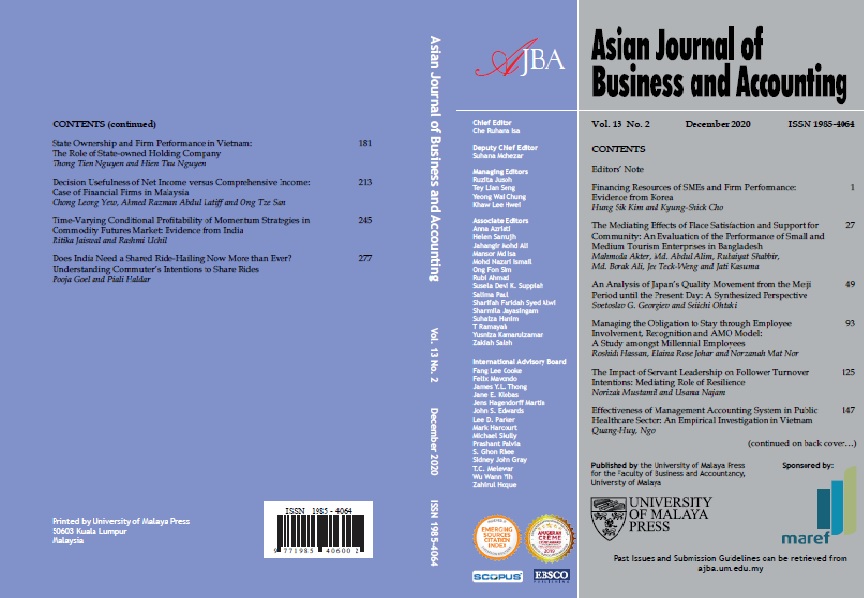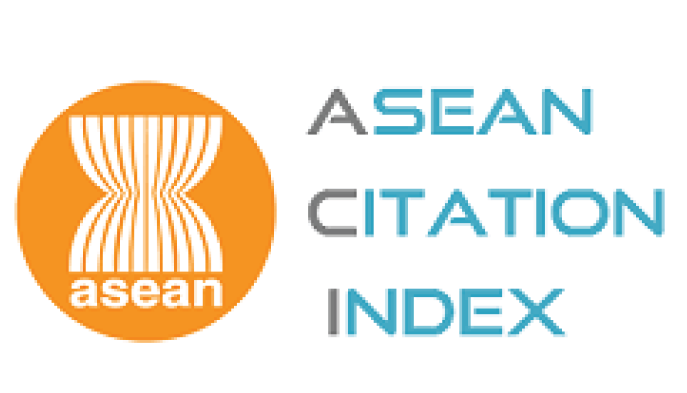State Ownership and Firm Performance in Vietnam: The Role of State-Owned Holding Company
DOI:
https://doi.org/10.22452/ajba.vol13no2.7Keywords:
Corporate Governance, State-owned Holding Company, Ownership Structure, Board Characteristics, Firm PerformanceAbstract
Manuscript type: Research paper
Research aims: Ownership structure is crucial to corporate governance as it explains sources of the agency conflicts. Despite the studies performed on the roles and impacts of diverse corporate ownership on corporate performance and corporate governance, the role of state-owned holding company (SOH), as a particular type of state ownership, has not been duly explored. This study addresses the gap by examining the relationship between SOH ownership in listed companies, and how they perform.
Design/Methodology/Approach: This quantitative study applies empirical models which test the impact of the different ownerships of firms on firm performance by controlling board characteristics. Regression models are used to test the explanatory power of the variables of interest. Data are collected from all the non-financial firms listed on the Ho Chi Minh Stock Exchange (HOSE), and the Hanoi Stock Exchange (HNX), prior to 31 December, 2009. The selected period equals to a balanced panel dataset of 242 firms for a period of 9 years, ranging from 2009 to 2017.
Research findings: The results show that firms with SOH ownership, or SOH-linked companies (SLCs), tend to deliver superior returns. They also enjoy higher valuations than government-linked companies(GLCs), and non-GLCs. There is evidence to show that when the SOH holds a dominant ownership, it exercises positive control over firms, thereby resulting in better market performance.
Theoretical contribution/Originality: The evidence of this study focusses on Vietnam. It is also consistent with the findings of other countries. This study confirms that the SOH model mitigates the agency problems that exist in companies with state capital. This study also provides empirical evidence which support that SOH is a mechanism that resolves the various problems noted in state-linked companies caused by conflicting objectives, political influences, and poor management and governance.
Practitioner/Policy implications: This study offers regulators a reference which can be used when making policies that would suit the environment of Vietnam. In that regard, it offers an indepth look into the SOH model which is further encouraged for replication. The outcome derived from this study can help managers to make adjustments and improvements in company’s corporate governance so as to achieve better firm performance. This study also helps investors and other stakeholders to better understand the problems arising from corporate governance in Vietnam. In that regard, the outcome can be used to help them make better decisions such as investments, choosing board directors, or making corporate governance policies.
Research limitation/Implications: This study faces some limitations, among which is that it focusses solely on firm performance.








